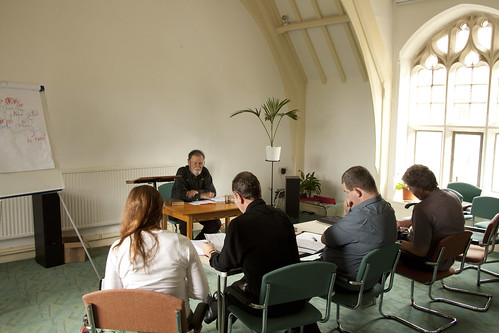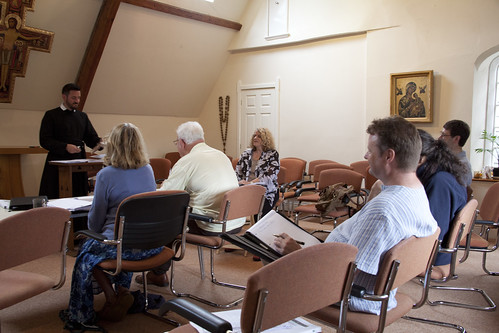Since Officiciorum Omnium is an Apostolic Letter (of Pope Pius XI), and not just an Instruction of a Roman Congregation, and since it is fairly short, I have commissioned a translation. The Latin is available on the on-line Acta Apostolicis Sedis (Volume XIV, 1922). The translation will be posted in full on the LMS website when it is ready, here are some highlights.
It came out in the first year of Pope Pius XI's pontificate, promulgated August 7th 1922: he clearly regarded it as a high priority. And so should we.
One striking thing about the pre-Conciliar calls for more Latin is that they are not particularly interested in the liturgy. Officiorum omnium doesn't even mention it. Latin liturgy could be taken for granted; the reason why seminarians must learn Latin is for their studies.
On praying for vocations.
First of all since, as we have said, the
affairs of the sacred order and of the Church have a very close mutual linkage,
there can be no doubting that at all times an adequate number of men is
destined by God for the priesthood; otherwise God would ever be failing his
Church in an essential matter, and even to mention that is wicked.
God is sending us the vocations, but He still wants us to pray for them.
 |
| Fr John Hunwicke teaching at the LMS Latin Course in July. |
On Latin as the language of the Church.
Since the Latin language is such, it was divinely foreseen that it should be something marvellously useful for the teaching Church, and that it should also serve as a great bond of unity for Christ’s more learned faithful; that is to say, by giving them not only something with which, whether they are separated by spatial location or gathered into one place, they might easily compare the respective thoughts and insights of their minds, but also – and this is greater – something with which they might understand more profoundly the things of mother Church, and might be united more closely with the head of the Church.
...And you might say with admiration that it was ready-made to serve the glory of the Roman Pontiff, to whom the very seat of Empire came as by a bequest.
Even the laity should study Latin
But if in any
layman who is indeed imbued with literature, ignorance of the Latin language, which
we can truly call the “catholic” language, indicates a certain sluggishness
(apathy) in love towards the Church, how much more fitting it is that each and
every cleric be adequately practised and skilled in that language! Their task is
certainly to defend Latinity with all the more steadiness, aware as they are that
it was with all the more violence that it was attacked by the adversaries of
catholic wisdom who in the 16th century shattered Europe ’s
accord in a single doctrine of Faith.
Latin is necessary for the study of theology and philosophy.
we wish the
alumni to be instructed very exactly in the Latin language, and also for this
motive, in case, when they afterwards approach the higher disciplines which are
certainly both to be handed on and to be received in Latin, it happens that
through ignorance of the language they are unable to achieve full understanding
of the doctrines, let alone to exercise themselves in those scholastic disciplines
by which the talents of youths are sharpened for defending truth.
Lack of Latin throws seminarians to the mercy of second-rate modern theologians.
...that our clerics and priests,
when they have not put enough effort into the study of Latin literature, by neglecting
the copious volumes of the Fathers and Doctors of the Church in which the dogmas
of the Faith are presented and are both set forth very lucidly and defended
invincibly, seek for themselves a suitable supply of doctrine from more recent
authors, in which not only does a clear kind of speech and an exact method of
arrangement often scarcely usually exists, but also a faithful
interpretation of dogmas is lacking.
Another of Pope Pius XI's headaches was the rise of Italian Fascism, and he was not slow to condemn it as a form of paganism. It seems he has a little swipe at it in this document, promulgated just weeks before Mussolini's coup.
 |
| Mussolini and his Blackshirts march on Rome, October 1922 |


No comments:
Post a Comment